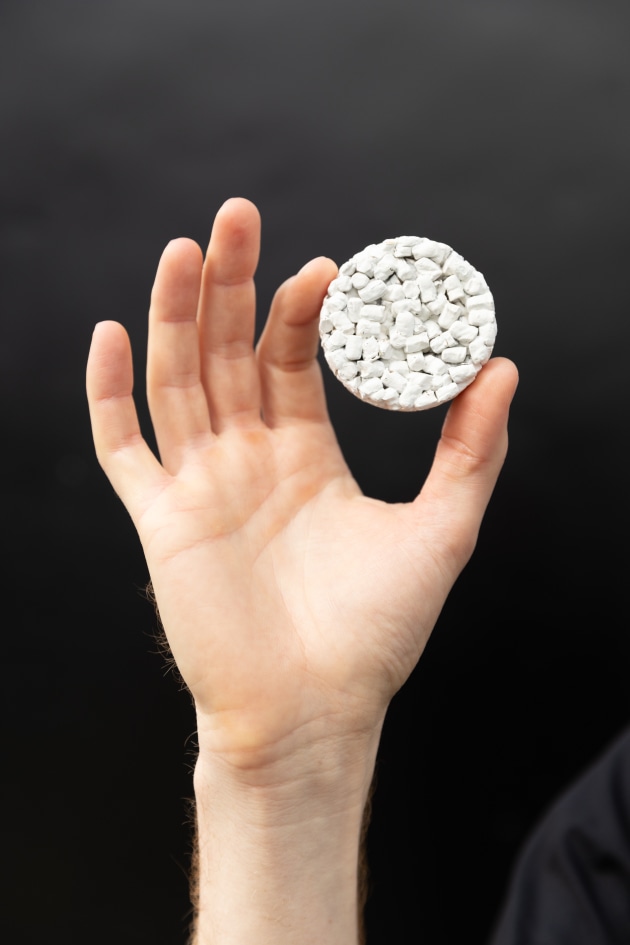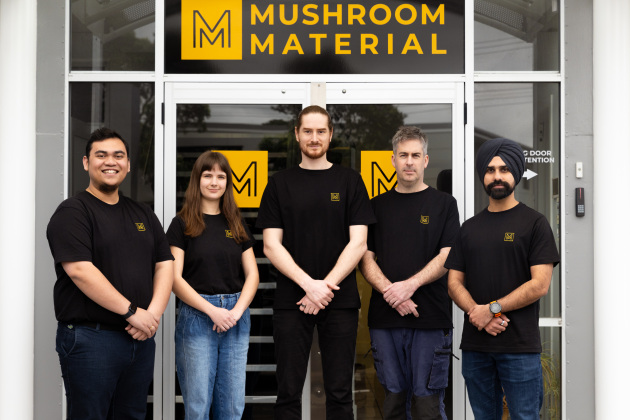New Zealand-based Mushroom Material, a start-up replacing Styrofoam with what it calls a world-first pelletised fungi packaging, has secured NZ$8.5 million in seed funding to build its pilot plant.
Southeast Asia’s leading venture capital firm, Wavemaker Partners, and Singapore’s SEEDS Capital, have led the investment along with local and overseas venture capitals Icehouse Ventures, K1W1 and Black Kite Capital.
Founded in 2020 by Shaun Seaman and Jotinder Singh, Mushroom Material aims to provide a sustainable and scalable alternative to single-use synthetic styrofoam.

The company has developed a unique process to grow millions of fungi-based pellets, which are then coated in a binding agent, allowing them to be shaped into customised packaging solutions.
This technology not only addresses scalability, but also cost-effectiveness, making it a viable alternative to traditional styrofoam.
“For a business sending 100 million television sets or dishwashers to the other side of the world, single-use styrofoam is realistically the only option to protect them at the moment,” said CEO, Seaman.
“At Mushroom Material, we’re aiming to bridge the gap between the packaging industries need for scalable, cost-effective solutions and society’s demand for environmental sustainability.
“Our mission is to scale this technology to meet global demand for eco-friendly packaging, delivering superior material characteristics, while maintaining uncompromised sustainability.”
The $8.5 million investment is being used to establish a 1300sqm pilot plant in Auckland’s Mount Roskill.
Mushroom Material plans to start delivering orders to existing customers in 2025, addressing the growing global demand for eco-friendly packaging.
The environmental impact of single-use styrofoam packaging is immense, emitting vast amounts of greenhouse gases, with millions of tonnes ending up in landfills and oceans annually.

To combat this, the global packaging industry is in the midst of a monumental sustainability overhaul, where regulatory and environmental pressures are mounting on distributors to phase out single-use packaging.
However, while countries around the world introduce taxes, responsibilities, bans and tight deadlines, the lack of a viable styrofoam alternative means many manufacturers have maintained their styrofoam usage.
“The start-up has developed a unique technology that integrates with existing styrofoam production lines, reducing costs and increasing efficiency,” said Andy Hwang, general partner at Wavemaker Partners.
“The significant market opportunity and strong regulatory demand for sustainable alternatives position Mushroom Material for substantial growth.”
Jack McQuire, partner at Icehouse Ventures, expressed strong confidence in the company’s vision and technology.
“For the outsized problem of single-use plastic packaging, we need an outsized solution. Mushroom Material’s scalable and cost-competitive technology unlocks the potential for a global impact on sustainability,” McQuire explained.
“They have overcome the hurdles to make this technology rapidly scalable and cost competitive, unlocking the potential for an exponential and global impact on sustainability.
“Their recent success in Asian markets is just the beginning and we can't wait to see Mushroom Material grow.”
According to Mushroom Material, its packaging solution is not only compostable, but also offers excellent shock absorption, low density, and natural water resistance.
The company said it can be produced from various organic materials, including food waste, cardboard, and agricultural waste such as hemp, straw and wood chips, promoting a circular economy for its customers.
Already gaining significant interest, with over 200 companies expressing intent to purchase, Mushroom Material is poised to make a substantial impact.
As the second New Zealand company to be accepted into the globally renowned Techstars accelerator, the start-up is well on its way to transforming the packaging industry.
Mushroom Material’s innovative approach to sustainable packaging represents a significant leap forward in the fight against plastic waste.
With strong investor backing and a clear path to scalability, the company is set to lead the charge towards a more sustainable future.







